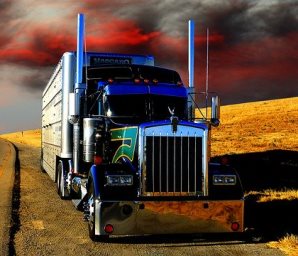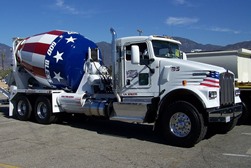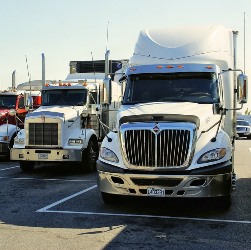How to Select the Best Truck Driver Classes near Denver Colorado
 Congrats on your decision to become a trucker and enroll in a CDL school near Denver CO. Perhaps it has always been your goal to hit the open road while operating a big ole tractor trailer. Or possibly you have conducted some research and have discovered that an occupation as a truck driver provides excellent pay and flexible work prospects. Regardless of what your reason is, it's imperative to obtain the proper training by enrolling in the right CDL school in your area. When assessing your options, there are several variables that you'll want to think about prior to making your final selection. Location will no doubt be an issue, especially if you have to commute from your Denver residence. The expense will also be of importance, but selecting a school based solely on price is not the best means to guarantee you'll get the right education. Don't forget, your objective is to master the skills and knowledge that will enable you to pass the CDL examinations and become a professional truck driver. So keeping that purpose in mind, just how do you pick a truck driving school? That is what we are going to discuss in the balance of this article. But first, we are going to review a little bit about which CDL license you will eventually need.
Congrats on your decision to become a trucker and enroll in a CDL school near Denver CO. Perhaps it has always been your goal to hit the open road while operating a big ole tractor trailer. Or possibly you have conducted some research and have discovered that an occupation as a truck driver provides excellent pay and flexible work prospects. Regardless of what your reason is, it's imperative to obtain the proper training by enrolling in the right CDL school in your area. When assessing your options, there are several variables that you'll want to think about prior to making your final selection. Location will no doubt be an issue, especially if you have to commute from your Denver residence. The expense will also be of importance, but selecting a school based solely on price is not the best means to guarantee you'll get the right education. Don't forget, your objective is to master the skills and knowledge that will enable you to pass the CDL examinations and become a professional truck driver. So keeping that purpose in mind, just how do you pick a truck driving school? That is what we are going to discuss in the balance of this article. But first, we are going to review a little bit about which CDL license you will eventually need.
Which CDL Is Required?

In order to drive commercial vehicles legally within the United States and Denver CO, a driver needs to attain a CDL (Commercial Driver's License). The 3 classes of licenses that one can qualify for are Class A, Class B and Class C. Since the subject of this article is how to choose a truck driver school, we will address Class A and B licenses. What differentiates each class of CDL is the kind of vehicle that the driver can operate as well as the GVWR (Gross Vehicle Weight Rating) or GCWR (Gross Combination Weight Rating). Below are short summaries for the 2 classes.
Class A CDL. A Class A Commercial Drivers License is needed to drive any vehicle that has a GCWR of greater than 26,000 lbs., including a towed vehicle of more than 10,000 lbs. Some of the vehicles that drivers may be able to operate with Class A licenses are:
- Interstate or Intrastate Tractor Trailers
- Trucks with Double or Triple Trailers
- Tanker Trucks
- Livestock Carriers
- Class B and Class C Vehicles
Class B CDL. A Class B CDL is needed to operate single vehicles having a GVWR of more than 26,000 lbs., or a GCWR of more than 26,000 lbs. including a towed vehicle weighing up to 10,000 lbs. Some of the vehicles that drivers may be qualified to operate with Class B licenses are:
- Tractor Trailers
- Dump Trucks
- Cement Mixers
- Large Buses
- Class C Vehicles
Both Class A and Class B CDLs might also require endorsements to drive specific types of vehicles, including school or passenger buses. And a Class A license holder, with the proper required endorsements, can operate any vehicle that a Class B licensee is authorized to operate.
How to Assess a Trucker School

After you have determined which Commercial Drivers License you want to pursue, you can start the undertaking of assessing the Denver CO truck driving schools that you are looking at. As previously mentioned, cost and location will certainly be your initial concerns. But it can't be stressed enough that they should not be your only concerns. Other factors, for example the reputations of the schools or the experience of the instructors are equally if not more important. So following are several more things that you should research while performing your due diligence before choosing, and especially paying for, your truck driver training.
Are the Schools Accredited or Certified ? Very few trucking schools in the Denver CO area are accredited because of the stringent process and cost to the schools. On the other hand, certification is more prevalent and is provided by the Professional Truck Driver Institute (PTDI). A school is not required to become certified, but there are a number of advantages. Prospective students recognize that the training will be of the highest caliber, and that they will receive plenty of driving time. For example, PTDI mandates 44 hours of real driving time, not simulations or ride-alongs. So if a school's program is certified (the program, not the school is certified), students know that the training and curriculum will fulfill the very high benchmarks set by PTDI.
How Long in Operation? One clue to help assess the quality of a truck driving school is how long it has been in operation. A negatively ranked or a fly by night school typically will not stay in business very long, so longevity is a plus. Having said that, even the best of Denver CO schools had to begin from their first day of training, so use it as one of multiple qualifications. You can also find out what the school's history is concerning successful licensing and job placement of its graduates. If a school won't share those numbers, look elsewhere. The schools should also maintain relationships with local and national trucking firms. Having numerous contacts not only confirms a quality reputation within the profession, but also boosts their job assistance program for graduates. It also wouldn't hurt to check with the Colorado licensing authority to make sure that the CDL trucker schools you are researching are in good standing.
How Effective is the Training? At a minimum, the schools must be licensed in Colorado and employ instructors that are experienced and trained. We will cover more about the teachers in the next section. In addition, the student to instructor proportion should not be higher than 4 to 1. If it's any higher, then students will not be receiving the personalized attention they will need. This is particularly true concerning the one-on-one instruction for behind the wheel training. And look out for any school that claims it can train you to be a truck driver in a relatively short time frame. Learning to be an operator and to drive a tractor trailer skillfully requires time. The majority of Denver CO schools provide training courses that range from three weeks to as long as two months, depending on the class of license or kind of vehicle.
How Good are the Trainers? As previously mentioned, it's imperative that the teachers are trained to teach driving methods and experienced as both instructors and drivers. Even though several states have minimum driving time criteria to qualify as a teacher, the more successful driving experience an instructor has the better. It's also important that the teachers keep current with industry developments or any new regulations or changes in existing laws. Evaluating instructors may be a bit more intuitive than other criteria, and perhaps the best method is to pay a visit to the school and speak with the teachers face to face. You can also talk to a few of the students going through the training and ask if they are satisfied with the level of instruction and the teacher's qualification to train them.
Adequate Driving Time? Above all else, a great trucking school will furnish plenty of driving time to its students. Besides, isn't that what it's all about? Driving time is the actual time spent behind the wheel operating a truck. Even though the use of ride-a-longs with other students and simulators are necessary training tools, they are no substitute for real driving. The more training that a student receives behind the wheel, the better driver she or he will be. Although driving time varies among schools, a good benchmark is 32 hours at a minimum. If the school is PTDI certified, it will furnish no less than 44 hours of driving time. Contact the Denver CO schools you are researching and find out how much driving time they furnish.
Are they Captive or Independent ? It's possible to get free or discounted training from certain truck driving schools if you make a commitment to drive for a specific carrier for a defined period of time. This is called contract training, and the schools that offer it are called captives. So instead of maintaining relationships with many different trucking lines that they can refer their students to, captives only refer to one company. The benefit is receiving free or less expensive training by giving up the freedom to initially work wherever you choose. Clearly contract training has the potential to limit your income opportunities when starting out. But for some it may be the only way to receive affordable training. Just make sure to find out if the Denver CO schools you are looking at are captive or independent so that you can make an informed decision.
Provide CDL Testing Onsite? There are a number of states that will allow 3rd party CDL testing onsite of truck driver schools for its graduates. If onsite testing is permitted in Colorado, ask if the schools you are considering are DMV certified to provide it. One advantage is that it is more accommodating than battling with graduates of other schools for test times at Colorado testing centers. It is moreover an indicator that the DMV regards the approved schools to be of a superior quality.
Are the Classes Accessible? As earlier mentioned, CDL training is just 1 to 2 months long. With such a brief term, it's important that the Denver CO school you select provides flexibility for both the curriculum and the scheduling of classes. As an example, if you're having difficulty learning a certain driving maneuver, then the instructor should be willing to spend more time with you until you have it mastered. And if you're still employed while going to training, then the class scheduling needs to be flexible enough to accommodate working hours or other obligations.
Is Job Placement Provided? As soon as you have obtained your CDL license after graduating from truck driving school, you will be anxious to start your new profession. Verify that the schools you are contemplating have job assistance programs. Ask what their job placement rate is and what average salary their grads start at. Also, find out which local and national trucking companies their graduates are placed with for employment. If a school has a lower job placement rate or few Denver CO employers recruiting their graduates, it may be a sign to look elsewhere.
Is Financial Assistance Given? Truck driver schools are similar to colleges and other Denver CO area trade or technical schools when it comes to loans and other forms of financial aid being available. Ask if the schools you are assessing have a financial aid department, or at a minimum someone who can help you navigate the options and forms that need to be submitted.
Learn More About Denver Trucker Schools
Choose the Best Denver CO Truck Driver Training
Choosing the right truck driver school is an essential first step to beginning your new profession as a long distance or local truck driver. The skills that you will learn at school will be those that shape a new career behind the wheel. There are several options available and understanding them is crucial to a new driver's success. However, you must obtain the proper training in order to drive a large commercial vehicle in a safe and professional fashion. If you are short on money or financing, you may want to consider a captive school. You will pay a reduced or in some cases no tuition in exchange for driving for their contracted carrier. Or you can choose an independent truck driver school and have the the freedom to drive for the trucking firm of your choosing, or one of several associated with the school. It's your choice. But regardless of how you obtain your training, you will soon be part of a profession that helps America move as a professional truck driver in Denver CO.
